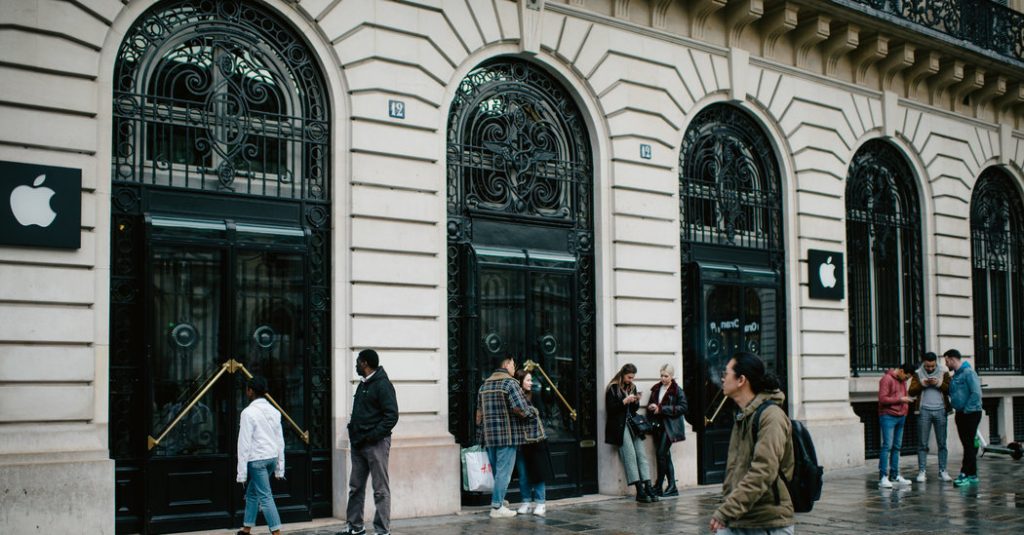American investigations of Big Tech’s power, including those by the Justice Department, Federal Trade Commission and state attorneys general, have tended to lump Apple in with Google, Facebook and Amazon. But Apple was thought to be at the least risk of punishment there because its business practices appeared to be less problematic than its closest peers.
But now Europe’s formal investigations show Apple still faces at least one big regulatory fight.
In Europe, the world’s largest technology companies have long been viewed with suspicion as they have consolidated power over the digital economy. In 2016, the European Commission ordered Ireland to collect 13 billion euros in unpaid taxes from Apple, worth about $14.7 billion today. The antitrust authorities have also issued billions of dollars in fines against Google for antitrust violations in recent years, while Amazon and Facebook are also facing fresh scrutiny.
Spotify has been discussing Apple’s practices with European regulators for about five years, according to a person involved in the talks, who spoke on the condition of anonymity because they were private. Tuesday’s announcement is a major milestone, yet the commission could still spend a year or more investigating the company’s practices before determining whether to bring charges.
Since Spotify made its formal complaint in Europe in March 2019, regulators have been considering how to show harm from Apple’s actions, according to the person involved. They eventually concluded that Apple’s 30 percent share of some revenues collected via the App Store raised competitors’ costs, eventually leading to higher prices for consumers, this person said.
Spotify said it had raised its monthly subscription price to $13 from $10 in 2014 to make up for Apple’s cut. A year later, Apple introduced its streaming-music competitor, Apple Music, priced at $10 a month. Spotify then decided to pull out of the App Store payment system, restricting Apple from taking a share and prompting Spotify to drop its price back to $10 a month. It then became more complicated to sign up for Spotify’s paid service; customers now have to go to a website instead of simply tapping a button in the app.
Apple has faced other scrutiny of how it uses its influence over the App Store. For years it has packed the top of many App Store search results with its own apps, even when they were less popular or relevant than competitors’ offerings, according to an investigation by The New York Times. In 2018, Apple also began restricting or removing many popular apps that helped people limit the time they and their children spent on their iPhones, just after Apple released competing tools. After the makers of two parental-control apps complained to European regulators and The Times reported on Apple’s moves, Apple quietly reversed its policy and let the apps back into the App Store.
In addition to App Store policies, European authorities are investigating Apple Pay, which allows people to make purchases within apps or in shops with an iPhone or Apple Watch. The questions surround requirements companies must agree to when integrating Apple Pay into apps or websites. The commission said it would review how the company controlled access to “tap and go” technology for rival payment systems on Apple devices.
